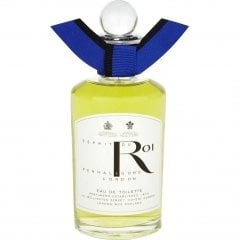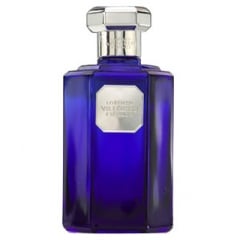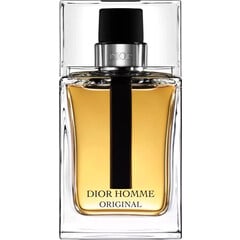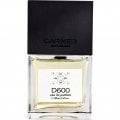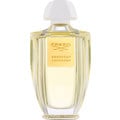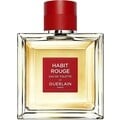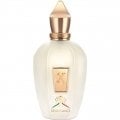
Unterholz
Reviews
Filter & sort
Translated
Show original
Le Roi est mort, vive le Roi!
This king is no more. Apicius prophesied nine years ago that this midfield Penhaligon would one day be terminated. Esprit du Roi 2011 was a re-release of a perfume with the same name from 1983. I can't say anything about the 83 version, I'm just referring to the re-release here.
Now I see the royal abdication not in its alleged middle class nature, but rather in the fact that the effects-used consumers simply demand "handier concepts" than one could see in such a weird herbal men's fragrance.
This Duchaufour is certainly a successful work of art, but on closer inspection it is neither fish nor meat. And little of it seems royal. It comes from a time when classic big and loud men's fragrances acquired a broad fan base that still exists. Why this rather quiet Penhaligon's did not succeed in the early 80's, I can't judge, so miles away from his shoes he can't have stood with his little bit of tomato extravagance either.
But why did the royal head have to roll? It may hardly be the quality, because this fragrance is really made to a high standard. Does the royalist title not correspond enough to the spirit of the times?
If you look at Penhaligon's latest outputs, it's the noblesse factor that the brand relies on... but now with a touch of British humour, which the poor tomato king always lacked. So we would see the failure of the joyless marketing, which finds its consensus in this boring white etiquette?
Anyway, I don't want to philosophize here for a long time about why one product can prove itself on the market and another not. But it is interesting to note that it cannot be the fragrance concept alone, as all kinds of "old-fashioned" recipes have experienced an almost overly celebrated renaissance in recent years. For example "Chypre Palatin", "Sartorial" (both by Duchaufour), "Invasion Barbare", "Masculin Pluriel" (Kurkdjian) etc etc which all say that those believed dead often live longer.
With Esprit du Roi, a certain perplexity is spreading. This scent can't make up its mind. The king rules, but he doesn't rule.
In the years in which I have been working with fragrances, my taste has sometimes changed a lot, sometimes so much that I now include perfumes in my collection that I would never have liked in the past.
At the beginning, for example, only citric, relatively natural scents without any sweetness were appealing to me, but I have dealt with amber, sweeter or even gourmand scents and often made friends with them. It was similar with floral scents, which I did not appreciate at all at the beginning.
And in this context I still remember my first test of this Penhaligon . I had received a specimen together with Endymion, and I liked the latter immediately.
I liked the royal top note, herbal-minty, then follows a fresh not too extreme floral soap in the heart, as I like it.
I found the slightly sweet ambered vetiver-moss base rather unsuitable and it left me a little helpless. At that time I gave it only 6.5 points and left it at that. My judgement must have been subject to my all or nothing maxim at that time: spicy-exotic or citrus-fresh. I realized that this approach did not have endless validity since I started testing the classics from Guerlain & Co., where citrus complexes and floral hearts work wonderfully in combination with a well-tempered vanilla-wood base. I consider some compositions of this kind to be the greatest (and most complete) perfumes of all time.
This Penhaligon's is basically arranged quite classically and you could easily overlook it, because it is nothing really new. The much quoted tomato note catapults it out of its habitualness and is perhaps the stumbling block for some people
Esprit du Roi is nevertheless worth a test, if you can generally get to grips with British perfumery. In the net you can find here and there some cheap remainders, I have also taken one without hesitation.
And surprisingly had to rehabilitate the king.
Long live the dead king!
Now I see the royal abdication not in its alleged middle class nature, but rather in the fact that the effects-used consumers simply demand "handier concepts" than one could see in such a weird herbal men's fragrance.
This Duchaufour is certainly a successful work of art, but on closer inspection it is neither fish nor meat. And little of it seems royal. It comes from a time when classic big and loud men's fragrances acquired a broad fan base that still exists. Why this rather quiet Penhaligon's did not succeed in the early 80's, I can't judge, so miles away from his shoes he can't have stood with his little bit of tomato extravagance either.
But why did the royal head have to roll? It may hardly be the quality, because this fragrance is really made to a high standard. Does the royalist title not correspond enough to the spirit of the times?
If you look at Penhaligon's latest outputs, it's the noblesse factor that the brand relies on... but now with a touch of British humour, which the poor tomato king always lacked. So we would see the failure of the joyless marketing, which finds its consensus in this boring white etiquette?
Anyway, I don't want to philosophize here for a long time about why one product can prove itself on the market and another not. But it is interesting to note that it cannot be the fragrance concept alone, as all kinds of "old-fashioned" recipes have experienced an almost overly celebrated renaissance in recent years. For example "Chypre Palatin", "Sartorial" (both by Duchaufour), "Invasion Barbare", "Masculin Pluriel" (Kurkdjian) etc etc which all say that those believed dead often live longer.
With Esprit du Roi, a certain perplexity is spreading. This scent can't make up its mind. The king rules, but he doesn't rule.
In the years in which I have been working with fragrances, my taste has sometimes changed a lot, sometimes so much that I now include perfumes in my collection that I would never have liked in the past.
At the beginning, for example, only citric, relatively natural scents without any sweetness were appealing to me, but I have dealt with amber, sweeter or even gourmand scents and often made friends with them. It was similar with floral scents, which I did not appreciate at all at the beginning.
And in this context I still remember my first test of this Penhaligon . I had received a specimen together with Endymion, and I liked the latter immediately.
I liked the royal top note, herbal-minty, then follows a fresh not too extreme floral soap in the heart, as I like it.
I found the slightly sweet ambered vetiver-moss base rather unsuitable and it left me a little helpless. At that time I gave it only 6.5 points and left it at that. My judgement must have been subject to my all or nothing maxim at that time: spicy-exotic or citrus-fresh. I realized that this approach did not have endless validity since I started testing the classics from Guerlain & Co., where citrus complexes and floral hearts work wonderfully in combination with a well-tempered vanilla-wood base. I consider some compositions of this kind to be the greatest (and most complete) perfumes of all time.
This Penhaligon's is basically arranged quite classically and you could easily overlook it, because it is nothing really new. The much quoted tomato note catapults it out of its habitualness and is perhaps the stumbling block for some people
Esprit du Roi is nevertheless worth a test, if you can generally get to grips with British perfumery. In the net you can find here and there some cheap remainders, I have also taken one without hesitation.
And surprisingly had to rehabilitate the king.
Long live the dead king!
12 Comments
Translated
Show original
There is nothing more dangerous in the world than greatness
The title is a quotation from Voltaire. Detached from the context, it addresses the problem that you can only define something big by ignoring something "smaller".
But one could also understand size as measure/vessel. It is therefore problematic to compare where it is not possible to compare or to measure where it should not be measured, because subjective or ethical values are involved. Nevertheless, measuring and thinking in terms of size (in the scientific sense) is always a driving force for progress and knowledge. A quite double-edged matter therefore.
After a good 4 years of abstinence from perfume, I notice that many users here have the focus on performance ("S/H"). In my opinion, in art (at least I see perfume as craftsmanship) even quieter "plants" should have their justification. And as a secret revolutionary ;-) I would like to dedicate my first comment to a performance weakling who has grown dear to my heart and who I consider absolutely justified. All those who demand murderous silage and durability from every fragrance, may check out at this point without hesitation.
I don't (yet) know the entire portfolio of the Florence perfumer, but I think Villoresi's work, simply entitled "Man", is a great success. From a projection point of view (to use the disgraceful word), it's almost a cologne, a supposedly light men's fragrance with classic elements, and yet it has enough independence (and depth!) to be always recognized. It doesn't make much sense to pray down single notes here, the whole thing is a work of art and at the same time a piece of cultivated toilet culture without any gayness or vanity. Nevertheless, Uomo has enough self-confidence, behind his sympathetic modesty there is character consistency. Endurance is more important than constant staging and attracting attention. This Uomo is the quiet creator in the background, one who not only pursues his personal interests, but is a philanthropist without making this attitude a big deal. This man sees perfume as an object of daily use, for which there is no need for hesitation or hesitation. He expresses polite restraint as well as a healthy awareness of (psycho-)hygiene.
The main theme in Uomo is certainly the lavender, which Apicius in his description combines with swimming pool atmosphere. Lavender can be quite biting, almost animalistic, tart, herbaceous, chlorous, even caustic. Some perfumers classify the work with it as difficult.
Countless classical/historical men's compositions with floral heart notes (from Chypres to Fougères) use this component, so that lavender (in traditional perfumery) could even be described as a typical "chubby" fragrance component? Here is a question mark. While other "flowers" (rose, jasmine, etc.) were once used rather timidly in men's perfumes, lavender was always a building block that could usually be smelled out well. When I think back to my own experiences as a child, I would definitely see lavender fragrance as something "older", not old-fashioned, but mature, in the sense of ripe. From this perspective, you could encounter it in dad's shaving lotions and EdT or in laundry scented bags, also much-tried clichés when it comes to lavender. Which has little to do with the actual scent experience with this typical and unmistakable smell. For me, lavender is a very versatile, complex fragrance (Lavender doesn't exist!) that covers nuances from ethereal freshness to dry-flowery sweetness and its use in perfumes can be all the more varied. A lavender absolute smells completely different from the extract of the (ripe) flowers. Nevertheless, there seems to be a trend in contemporary perfumes to do without the "throw-away" lavender or replace it with chemical substitutes (dihydromyrcenol etc.), which in turn encourages a certain insecurity in dealing with this rather natural scent...? Again, a big theory question mark behind this short digression.
Back to Uomo. He has a little of everything and just as much as it takes. Citrus peels bring a cooling cologne acid, herbs complement & green & calm as well. Like in a good kitchen, the spices are the salt in the soup, they never stick out, but without them something would be missing and they balance the smell, which otherwise would be rather cool. One can hardly speak of a base with Uomo, because due to the relatively weak scent concentration everything seems rather isomorphic, - but not monotonous. Nevertheless, I think I recognize a certain Villoresi base note: a discreet light woodiness (sandalwood and cedar), light dry soap (but not detergent, but real soap) wrapped in a velvety powdery nimbus without sweetness, which makes everything look very elegant.
This Uomo is not tall. But, to say it again with Voltaire: More than ever I realize that you must never measure anything by its apparent size!
But one could also understand size as measure/vessel. It is therefore problematic to compare where it is not possible to compare or to measure where it should not be measured, because subjective or ethical values are involved. Nevertheless, measuring and thinking in terms of size (in the scientific sense) is always a driving force for progress and knowledge. A quite double-edged matter therefore.
After a good 4 years of abstinence from perfume, I notice that many users here have the focus on performance ("S/H"). In my opinion, in art (at least I see perfume as craftsmanship) even quieter "plants" should have their justification. And as a secret revolutionary ;-) I would like to dedicate my first comment to a performance weakling who has grown dear to my heart and who I consider absolutely justified. All those who demand murderous silage and durability from every fragrance, may check out at this point without hesitation.
I don't (yet) know the entire portfolio of the Florence perfumer, but I think Villoresi's work, simply entitled "Man", is a great success. From a projection point of view (to use the disgraceful word), it's almost a cologne, a supposedly light men's fragrance with classic elements, and yet it has enough independence (and depth!) to be always recognized. It doesn't make much sense to pray down single notes here, the whole thing is a work of art and at the same time a piece of cultivated toilet culture without any gayness or vanity. Nevertheless, Uomo has enough self-confidence, behind his sympathetic modesty there is character consistency. Endurance is more important than constant staging and attracting attention. This Uomo is the quiet creator in the background, one who not only pursues his personal interests, but is a philanthropist without making this attitude a big deal. This man sees perfume as an object of daily use, for which there is no need for hesitation or hesitation. He expresses polite restraint as well as a healthy awareness of (psycho-)hygiene.
The main theme in Uomo is certainly the lavender, which Apicius in his description combines with swimming pool atmosphere. Lavender can be quite biting, almost animalistic, tart, herbaceous, chlorous, even caustic. Some perfumers classify the work with it as difficult.
Countless classical/historical men's compositions with floral heart notes (from Chypres to Fougères) use this component, so that lavender (in traditional perfumery) could even be described as a typical "chubby" fragrance component? Here is a question mark. While other "flowers" (rose, jasmine, etc.) were once used rather timidly in men's perfumes, lavender was always a building block that could usually be smelled out well. When I think back to my own experiences as a child, I would definitely see lavender fragrance as something "older", not old-fashioned, but mature, in the sense of ripe. From this perspective, you could encounter it in dad's shaving lotions and EdT or in laundry scented bags, also much-tried clichés when it comes to lavender. Which has little to do with the actual scent experience with this typical and unmistakable smell. For me, lavender is a very versatile, complex fragrance (Lavender doesn't exist!) that covers nuances from ethereal freshness to dry-flowery sweetness and its use in perfumes can be all the more varied. A lavender absolute smells completely different from the extract of the (ripe) flowers. Nevertheless, there seems to be a trend in contemporary perfumes to do without the "throw-away" lavender or replace it with chemical substitutes (dihydromyrcenol etc.), which in turn encourages a certain insecurity in dealing with this rather natural scent...? Again, a big theory question mark behind this short digression.
Back to Uomo. He has a little of everything and just as much as it takes. Citrus peels bring a cooling cologne acid, herbs complement & green & calm as well. Like in a good kitchen, the spices are the salt in the soup, they never stick out, but without them something would be missing and they balance the smell, which otherwise would be rather cool. One can hardly speak of a base with Uomo, because due to the relatively weak scent concentration everything seems rather isomorphic, - but not monotonous. Nevertheless, I think I recognize a certain Villoresi base note: a discreet light woodiness (sandalwood and cedar), light dry soap (but not detergent, but real soap) wrapped in a velvety powdery nimbus without sweetness, which makes everything look very elegant.
This Uomo is not tall. But, to say it again with Voltaire: More than ever I realize that you must never measure anything by its apparent size!
8 Comments

 Unterholz
Unterholz